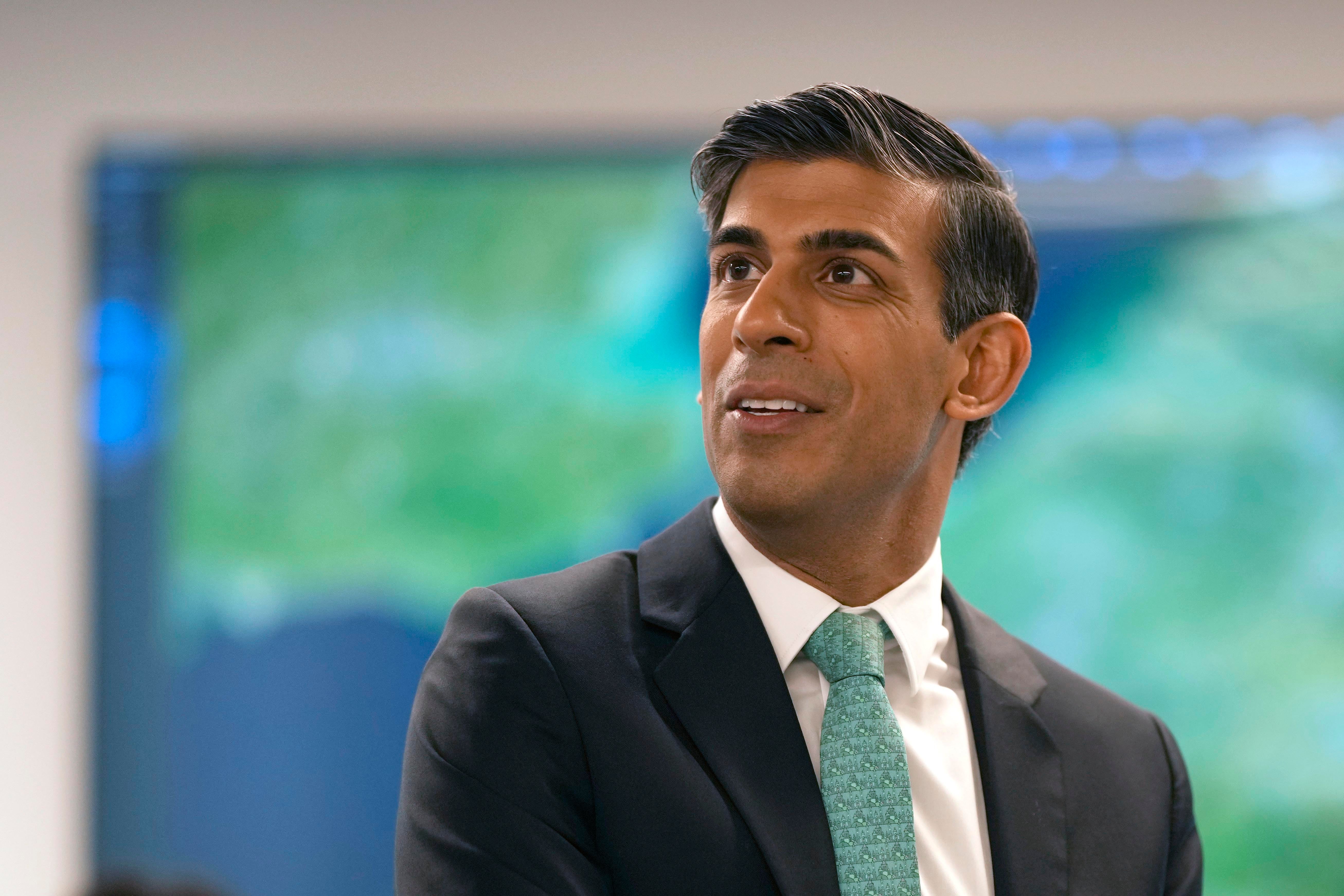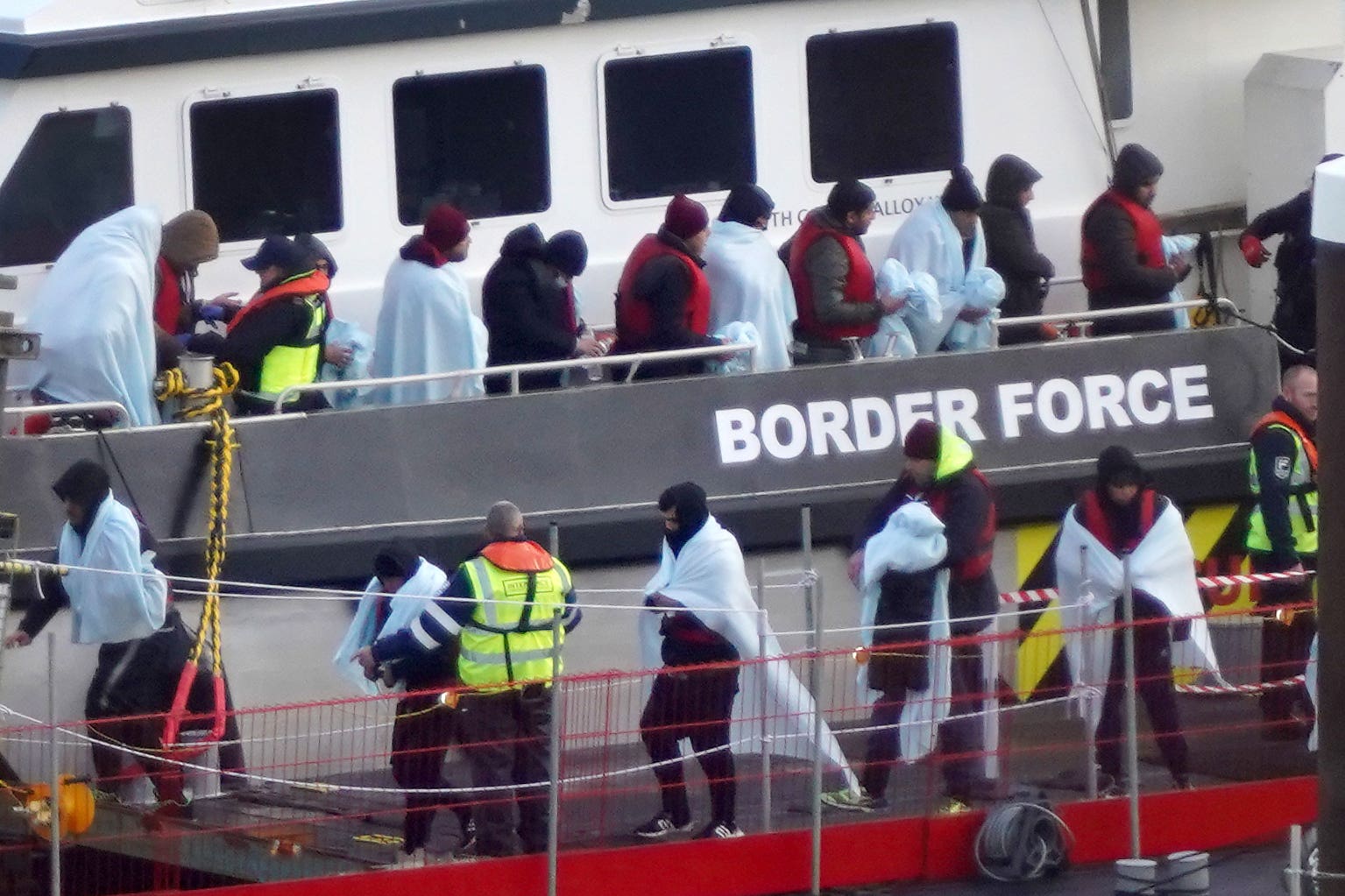Sunak asylum plan violates international law, UN says
‘If you enter the UK illegally, you should not be able to remain here,’ prime minister vows


Rishi Sunak’s plan to deny asylum to migrants arriving in small boats violates international law and undermines Britain’s “humanitarian tradition”, the United Nations has said.
The prime minister on Tuesday promised to return thousands of Albanians to their home country, speed up asylum processing, make it harder to claim modern slavery, open reception centres to get 10,000 migrants out of hotels and prosecute more people for steering dinghies.
Critics condemned the measures as “cruel, ineffective and unlawful” while the UN Refugee Agency (UNHCR) appealed to Britain “uphold its legal obligations”.
Several MPs, including former prime minister Theresa May, raised concern at a new hurdle of “objective evidence” required from victims of modern slavery seeking help from the Home Office.
“Modern slavery is a very real and current threat,” said Ms May, who spearheaded the 2015 Modern Slavery Act. “We must do nothing to diminish our world-leading protections for the victims of this terrible, horrific crime.”
Mr Sunak told MPs his proposed legislation will “make it unambiguously clear that, if you enter the UK illegally, you should not be able to remain”.
“Instead, you will be detained and swiftly returned either to your home country or to a safe country where your asylum claim will be considered,” he told the Commons.
Experts questioned which “safe countries” asylum seekers could be sent to, with the High Court due to decide two legal challenges over the Rwanda scheme on Monday, and no returns agreements in place with EU countries.
Mr Sunak said the government would distinguish “illegal migrants” from “genuine refugees”, but the vast majority of small boat arrivals have claimed asylum and more than half of decided applications were successful.
The UNHCR said that limiting asylum to people arriving through “legal routes” goes against the basic principles of the 1951 Refugee Convention, and that resettlement programmes championed by the government “cannot replace the obligation to extend protection to asylum seekers arriving in the UK and applying directly”.
“The announced proposal to first detain, and then either return asylum seekers to their home countries, or transfer them to a third country, would amount to a denial of access to the UK asylum system for those who arrive irregularly,” said assistant high commissioner Gillian Triggs. “That approach would close down access to asylum in the UK for all but a privileged few.”
The authority warned that forcibly deporting asylum seekers to the countries they fled would “undermine the global refugee system at large and would be a violation of international refugee law”.
Asked if the plans “flout international law”, the prime minister did not directly answer but said the proposals were based on “common sense, fair principles”.

He claimed the system would still help those “most in need and most vulnerable” and said he had received formal assurances from Albania confirming that it will protect deported people at risk of re-trafficking.
Mr Sunak pledged to create more safe and legal routes for refugees to reach the UK, but said they would not be implemented until “we have proper control of our borders” and did not provide any detail.
At the same time, he announced that there would be a quota set by parliament on the number of refugees resettled in Britain – which amounted to just 1,391 people in the past year, compared to 86,000 conventional asylum applications.
Tim Naor Hilton, the chief executive of Refugee Action, said most of the announced changes were “cruel, ineffective and unlawful and will do nothing to fix the real problems in the system. They’ll instead cause misery for thousands of already traumatised people”.
The Refugee Council said the government had failed to come up with a “workable or principled” solution to Channel crossings, arguing that migrants resorted to small boats only because there are no legal and safe routes open to them.
Chief executive Enver Solomon said: “This government wants to treat people who come to the UK in search of safety as illegal criminals.
“This is deeply disturbing and flies in the face of international law and the UK’s commitment as a signatory of the UN Convention on Refugees to give a fair hearing to people who come here in search of safety and protection.”

Sile Reynolds, of Freedom from Torture, accused the prime minister of “recycling unethical and unworkable gimmicks”.
“Fast-tracking refusals and removals based solely on nationality or method of arrival is a dangerous, one-size-fits-all repackaging of a policy that risks breaching our international obligations to protect refugees,” she said.
After overcrowding at the Manston processing centre in Kent threw a spotlight on the government’s expenditure of more than £5m a day on hotels for asylum seekers, Mr Sunak relaunched plans drawn up under Priti Patel to house up to 10,000 people in reception centres in disused holiday parks, student accommodation and military sites.
Measures will be introduced – including a doubling in the number of caseworkers – with the intention of processing claims within “days or weeks, not years”, which Mr Sunak said should abolish the backlog of cases by the end of 2023.
The prime minister said a new Small Boats Operational Command would be created to bring together the military, the National Crime Agency and civilian staff currently targeting different aspects of Channel crossings.
Join our commenting forum
Join thought-provoking conversations, follow other Independent readers and see their replies
Comments


Bookmark popover
Removed from bookmarks